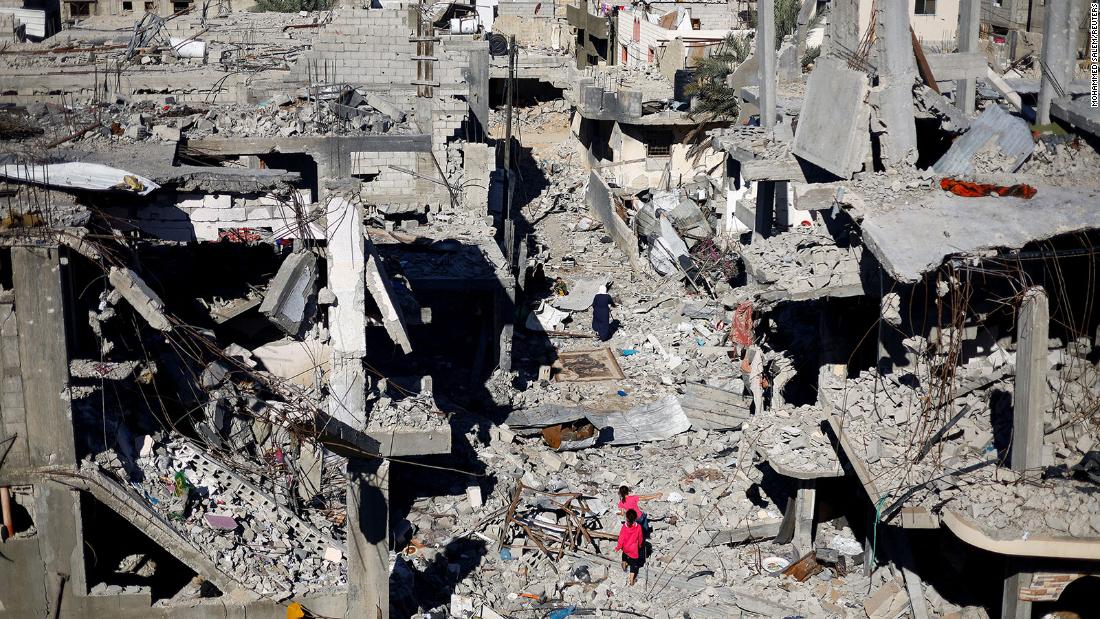Each day the pause in Israel’s war with Hamas is extended saves lives.
A second extension of the truce, lasting one day, came into force early Thursday. But the lull in fighting also sharpens the moral, political and military dilemmas that will play out in the almost inevitable return to full-scale hostilities — including some apparent strategic and humanitarian differences of emphasis between US President Joe Biden’s administration and the Israeli government.
While the truce has so far been surprisingly successful — given it is taking place with both Israel and Hamas seeking the other’s elimination — there is an unmistakable sense that a fateful moment is approaching within days when Israel will decide on how long it can hold off its scorching military offensive.
Will Israel listen to US pleas for a more surgical approach? Israel’s initial assault on Hamas led to huge civilian carnage in the densely populated Palestinian enclave in the first phase of the war, sending tens of thousands of protesters into the streets in the US and across the world while heaping political pressure on President Joe Biden from inside his own electoral coalition.
The likely prospect that a second-wave Israeli offensive against Hamas strongholds in southern Gaza would be even more bloody now threatens to open gaps between Washington and Israeli Prime Minister Benjamin Netanyahu’s government and military leaders. CNN’s MJ Lee, Jennifer Hansler and Katie Bo Lillis reported Wednesday that US officials, including Biden, told Israeli officials they don’t want to see a repeat of airstrikes that led to massive destruction and terrible scenes of civilian casualties. Israel must be more “cautious, more careful, more deliberate and more precise in their targeting,” one senior administration official said.
Israel’s moral and military dilemmas: The Israeli government is being pulled in two directions that may be irreconcilable – the desire to get all of the hostages back and the incentive to press on with its military operation after a pause that offered Hamas a chance to regroup and prepare for a new assault.
At home, the Israeli prime minister, beset by deep unpopularity after the surprise Hamas attacks, is also being pulled between growing political pressures from hostage families, who want their loved ones released, and his right-wing coalition members, who are advocating for harsh action amid frustration that the pause has allowed Hamas to use hostages to regain control of the tempo of the crisis.
Netanyahu also faces the growing possibility of a clash between his desire to target Hamas and US anxiety over another round of huge civilian casualties in Gaza. American support would be even more crucial for Israel in a second phase of fighting, because foreign powers are likely to strongly criticize the Netanyahu government if it is seen to reignite hostilities.
Read more in Collinson’s analysis of US-Israeli wartime relations.

David Turner is a globe-trotting journalist who brings a global perspective to our readers. With a commitment to shedding light on international events, he explores complex geopolitical issues, offering a nuanced view of the world’s most pressing challenges.






